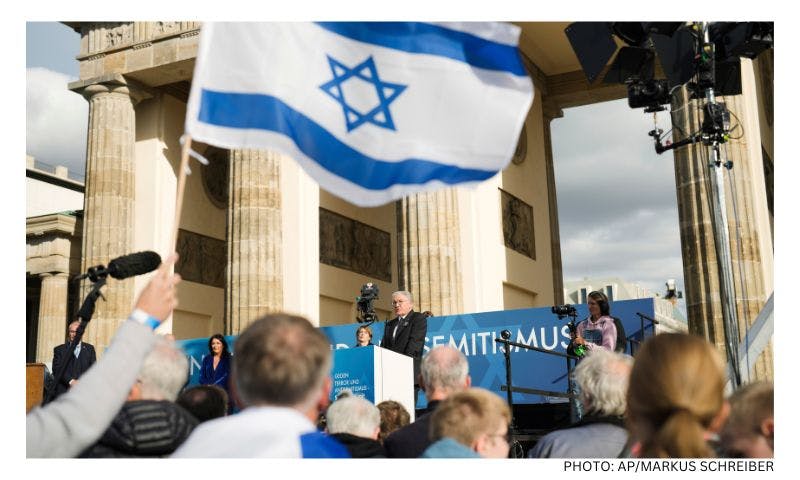Published: 2 April 2019
Last updated: 4 March 2024
A 10-day party trip across Israel is an effective – albeit superficial – way to establish a personal connection with the country. By creating an experience accessible to any Jewish person (a free trip to anyone of Jewish heritage, aged 18-32) and making sure the experience is desirable to any young person, Birthright draws thousands of Jewish youth from around the globe into an incredible experience, with the added perk of it being in Israel.
I don’t have an issue with this vision or Birthright’s mission. As a Zionist, I think there is power in connecting diaspora Jewry to what might otherwise be a vague notion of Israel; ascribing a face to an otherwise faceless myth. Who’s to say that partying in Israel isn’t a connection and that spending time with other Jews doesn’t strengthen Jewish connection?
Recently, the American Jewish advocacy organisation J Street announced it was starting an alternative program. Media reporting of the J-Street program aired critiques of the existing Birthright model.
These ranged from the financial: that the money used to treat these privileged kids to a holiday could be better used elsewhere; to purely ideological: that these trips reinforce a false narrative in which one’s Jewish identity and Zionism are mutually dependant.
However, my most pressing concern was only briefly mentioned in its argument.
I have seen many young people embark on short-term Israel programs only to return with a fairytale understanding of a rather complex country. Pedagogically speaking, this is quite reasonable. A simple connection needs to be built before it can be meaningfully challenged without immediate rejection. However, there are two major points that indicate that this process is not educationally sound.
The first, is that there is no educational follow-up. A fairytale experience might be good for building a superficial connection to Israel, but if this remains undeveloped in an educational setting, it shall remain superficial.
And as soon as this narrative is challenged in a real-world setting, it is much more likely to lead to a rejection of the entire narrative rather than a constructive, thoughtful discussion.
A fairytale experience might build a superficial connection but if this remains undeveloped in an educational setting, when challenged in a real-world setting it is much more likely to lead to a rejection of the entire narrative.
The second, is Hasbara, the notion that every Jew in the Diaspora is expected to be a vocal advocate of Israel. Putting aside larger scale criticisms of this idea, if participants are only exposed to a very narrow, polished slice of Israel, their capacity to participate in productive debate when confronted with valid criticisms of Israel is limited.
Ultimately, many of these programs lack nuance. This to be expected, of course. In designing a short, accessible program, compromises must be made. Investigating Israel’s complex political climate with nuance, while exploring its rich culture and diverse scenery, is an educational feat too great for any short program.
And this is not a criticism in itself. It is important to recognise these programs for what they do achieve, as well as what they don’t. Israel’s complexities are numerous. The Palestinian conflict is alive and well as the occupation reaches its 62nd year. Religious and ethnic minorities are still marginalised in an oxymoronic theocratic “democracy”.
Orthodoxy still has an institutionalised power grip on what constitutes as “legitimate” forms of Jewish expression. The Knesset is still riddled with corruption, with a Prime Minister facing indictment. Israel is far from a utopia.
While these programs do not necessarily have an obligation to present the full scope of Israel’s complexities, they shouldn’t serve to merely perpetuate the status quo. There should be space for discussion and debate, and madrichim should encourage critical questions as they arise. It goes without saying that the education should not be so one-sided as to elicit protests.
Photo: Students pose with signs at J Street U's West Coast workshop (courtesy)




